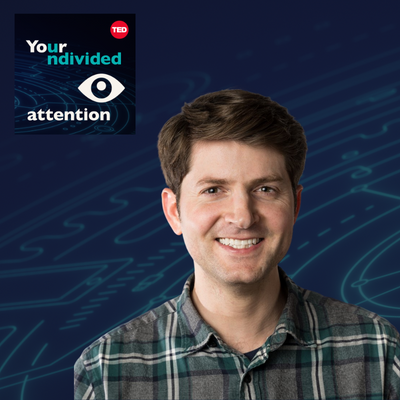Episode 48 | Feb 24, 2022
The Invisible Influence of Language with Lera Boroditsky
One of the oldest technologies we have is language. How do the words we use influence the way we think?
The media can talk about immigrants scurrying across the border, versus immigrants crossing the border. Or we might hear about technology platforms censoring us, versus moderating content.
If those word choices shift public opinion on immigration or technology by 25%, or even 2%, then we’ve been influenced in ways we can't even see. Which means that becoming aware of how words shape the way we think can help inoculate us from their undue influence. And further, consciously choosing or even designing the words we use can help us think in more complex ways – and address our most complex challenges.
This week on Your Undivided Attention, we're grateful to have Lera Boroditsky — a cognitive scientist who studies how language shapes thought. Lera is a Professor of Cognitive Science at UC San Diego.
Clarification: in the episode, Aza refers to Elizabeth Loftus' research on eyewitness testimony. He describes an experiment in which a car hit a stop sign, but the experiment actually used an example of two cars hitting each other.
Major Takeaways
The Sapir–Whorf hypothesis is the principle that the structure of a language affects its speakers' worldview and cognition. Also known as linguistic relativity, the hypothesis doesn’t imply that language determines thought, but influences it. Lera's research supports the Sapir–Whorf hypothesis.
We can also deliberately change language in order to influence public thinking on a matter — like how changing gender pronouns can influence our understanding of gender.
Language has been weaponized since the days of Shakespeare. What's different today is that social media enables the exponential weaponization of language — and specifically, of divisive and outrage-inducing language.
We can think of language as a psycho-technology that can be both weaponized and also humanely designed. For example, language can be designed to address the 'complexity gap' for understanding complex phenomena, like the climate crisis.
We can't not use metaphors and other framing devices. So the question isn't whether we use and are influenced by frames, but how. In order to help inoculate us from undue influence, we can: have awareness of frames (which we gained with this episode!), maintain epistemic humility, and deliberately choose the frames we use.
Other recommended reading
How language shapes the way we think
Lera Boroditsky's 2018 TED talk about how the 7,000 languages spoken around the world shape the way we think
Measuring Effects of Metaphor in a Dynamic Opinion Landscape
Boroditsky and Paul H. Thibodeau's 2015 study about how the metaphors we use to talk about crime influence our opinions on how to address crime
Subtle linguistic cues influence perceived blame and financial liability
Boroditsky and Caitlin M. Fausey's 2010 study about how the language used to describe the 2004 Super Bowl "wardrobe malfunction" influence our views on culpability
Why are politicians getting 'schooled' and 'destroyed'?
BBC article featuring the research of former Your Undivided Attention guest Guillaume Chaslot, which shows the verbs YouTube is most likely to include in titles of recommended videos — such as "obliterates" and "destroys"



